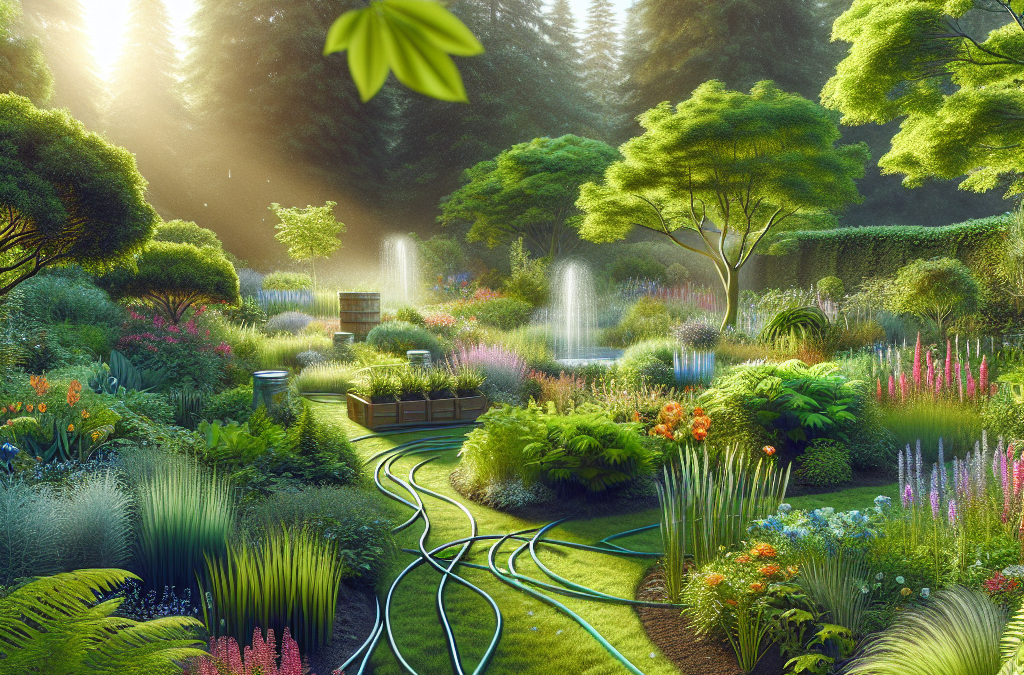Welcome to our comprehensive guide on Portland’s best sustainable garden solutions. As urban spaces continue to grow, the importance of maintaining green, environmentally-friendly gardens has never been more critical. Portland, known for its lush landscapes and eco-conscious community, offers a variety of sustainable options for garden enthusiasts.
In this article, we will explore various practices and techniques that can help you create a garden that is not only beautiful but also environmentally sustainable. From understanding the benefits of native plants to incorporating water-efficient irrigation systems, we’ve got you covered.
Whether you’re a seasoned gardener or just starting out, these insights will provide valuable knowledge to enhance your gardening practices. Contact us today to discover how our landscaping services can transform your property! Learn more.
Benefits of Sustainable Gardening Practices
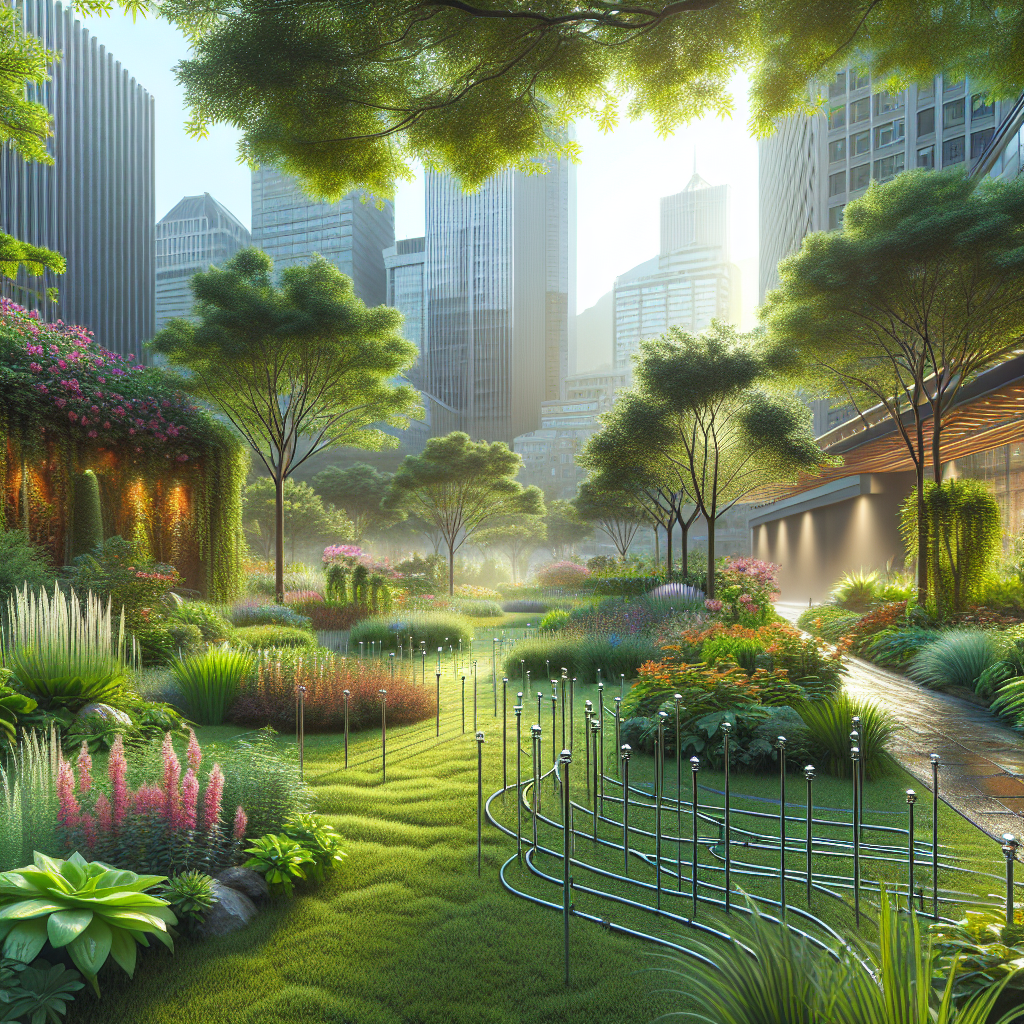
Adopting sustainable gardening practices offers a multitude of benefits that extend beyond just your garden. First and foremost, sustainable gardening helps conserve natural resources. By using techniques such as rainwater harvesting and drip irrigation, you can significantly reduce water usage, which is especially crucial in areas prone to drought.
Another key benefit is the promotion of biodiversity. By incorporating native plants and avoiding chemical pesticides, you create a habitat that supports a variety of wildlife, from pollinators like bees and butterflies to beneficial insects and birds. This biodiversity not only enhances your garden’s resilience but also contributes to the larger ecosystem.
Moreover, sustainable gardening practices often involve composting and soil health management. Healthy soil is the foundation of a thriving garden, and composting helps enrich the soil with essential nutrients, reducing the need for synthetic fertilizers. This not only saves money but also minimizes your environmental footprint.
In addition to these environmental benefits, sustainable gardening can also improve your personal well-being. Gardening is a great form of exercise and has been shown to reduce stress and improve mental health. Knowing that your gardening efforts are environmentally friendly can add an extra layer of satisfaction and purpose to your activities.
By embracing sustainable gardening practices, you’re not just cultivating a beautiful garden—you’re making a positive impact on the environment and your community.
Native Plants for Portland Gardens
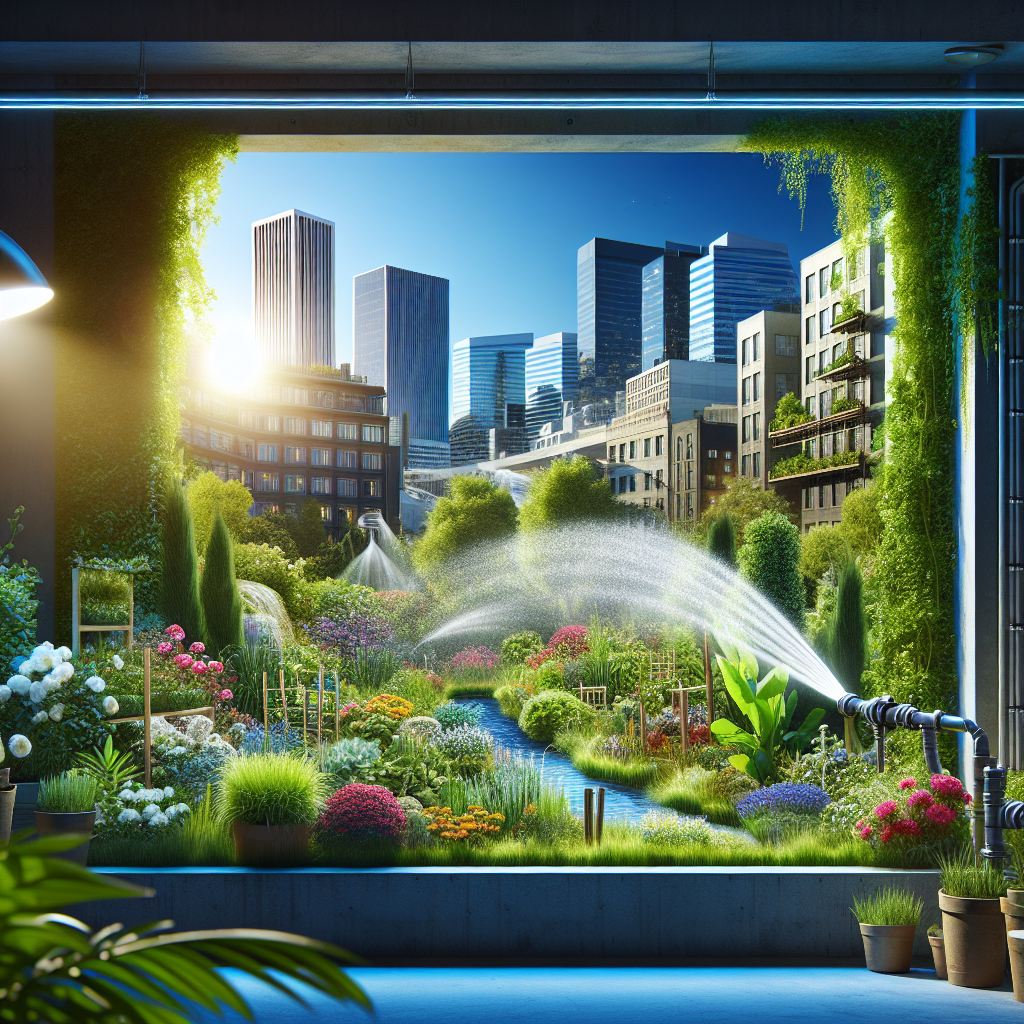
Choosing native plants for your Portland garden is a smart and sustainable choice for several reasons. Native plants are adapted to the local climate, soil, and ecosystem, which means they require less water, fertilizer, and pest control compared to non-native species. This makes them an excellent option for gardeners looking to create a low-maintenance and eco-friendly landscape.
Some popular native plants for Portland gardens include the Oregon Grape (Mahonia aquifolium), which is not only the state flower but also a hardy shrub that thrives in the Pacific Northwest climate. Its bright yellow flowers and blue berries make it a visually appealing addition to any garden. Another excellent choice is the Red Flowering Currant (Ribes sanguineum), known for its vibrant pink flowers that attract hummingbirds and other pollinators.
For ground cover, consider the Kinnikinnick (Arctostaphylos uva-ursi), a low-growing evergreen that provides year-round interest with its glossy leaves and red berries. It’s perfect for areas that need erosion control. Another ground cover option is the Coastal Strawberry (Fragaria chiloensis), which produces attractive white flowers and edible fruit, making it both functional and beautiful.
Trees are also an important consideration. The Pacific Dogwood (Cornus nuttallii) offers stunning white blossoms in the spring and attractive foliage in the fall. The Western Red Cedar (Thuja plicata) is another native tree that provides excellent shade and privacy while supporting local wildlife.
Incorporating native plants into your Portland garden not only enhances its beauty but also supports local biodiversity and reduces the need for artificial inputs, making your gardening efforts more sustainable and rewarding.
Water Conservation Techniques for Gardens
Implementing effective water conservation techniques in your garden is essential for sustainability, especially in urban areas like Portland where water resources can be limited. By adopting these strategies, you can maintain a lush, healthy garden while significantly reducing water usage.
One of the most effective methods is mulching. Applying a layer of organic mulch, such as wood chips or straw, helps retain soil moisture, reduce evaporation, and suppress weeds. Mulch also adds nutrients to the soil as it decomposes, improving overall soil health.
Another technique is drip irrigation. Unlike traditional sprinkler systems, drip irrigation delivers water directly to the plant roots, minimizing water loss due to evaporation and runoff. This method ensures that plants receive the precise amount of water they need, promoting healthier growth and reducing waste.
Collecting and using rainwater is also a highly effective conservation strategy. Installing rain barrels or a more elaborate rainwater harvesting system allows you to capture and store rainwater for later use in your garden. This not only conserves municipal water but also provides plants with naturally soft, chemical-free water.
Grouping plants with similar water needs together, known as hydrozoning, is another smart approach. By creating distinct zones based on water requirements, you can more efficiently manage irrigation and ensure that each plant receives the appropriate amount of moisture.
Additionally, choosing drought-tolerant plants, such as succulents or native species, can greatly reduce the amount of water your garden needs. These plants are adapted to thrive with minimal water and can still provide a vibrant and diverse landscape.
Incorporating these water conservation techniques into your Portland garden not only helps protect this precious resource but also creates a more resilient and sustainable outdoor space.
Organic Soil Management Practices
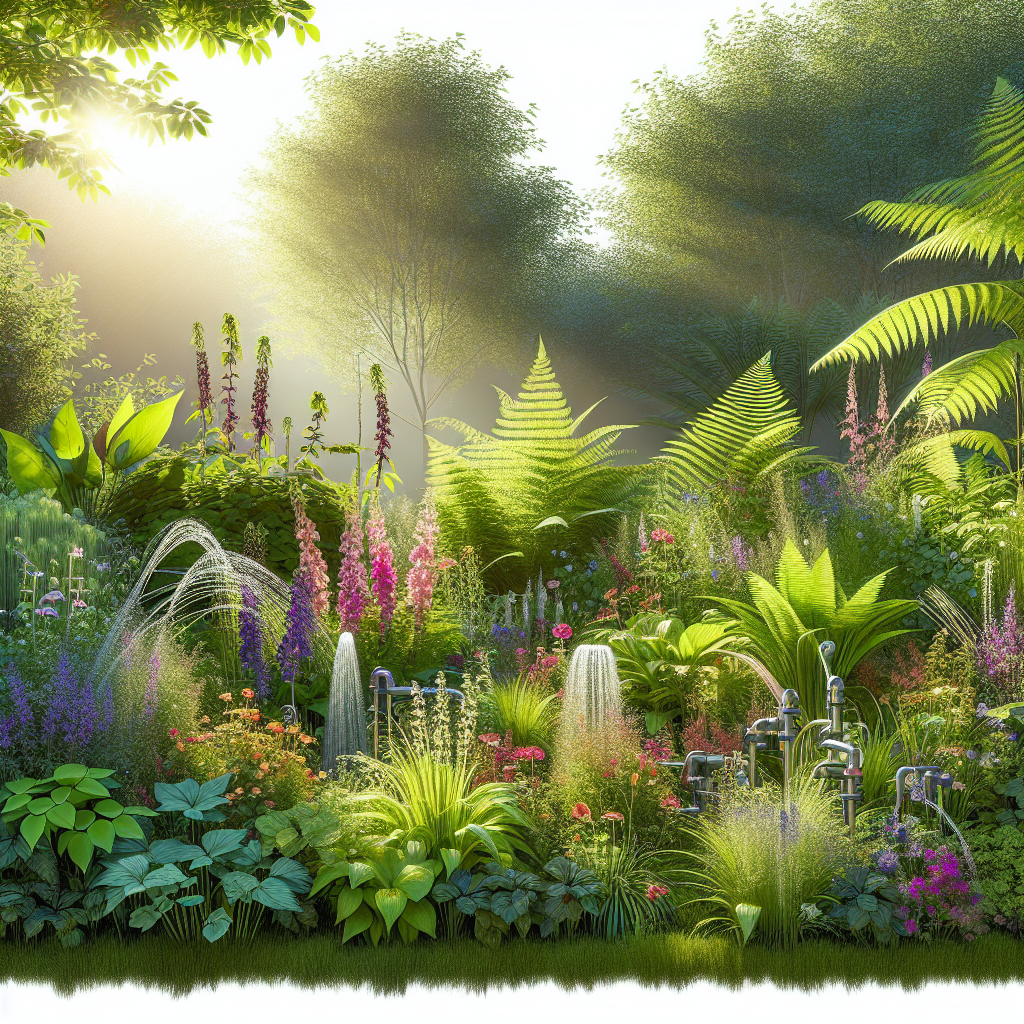
Adopting organic soil management practices is a cornerstone of sustainable gardening, particularly in Portland where gardeners are keen on maintaining ecological balance. Healthy soil is the foundation of a thriving garden, and organic methods ensure that it remains fertile and robust without the adverse effects of chemical fertilizers and pesticides.
One of the primary practices is the use of compost. Composting kitchen scraps, yard waste, and other organic materials create nutrient-rich humus that can be added to your garden soil. This not only improves soil structure and fertility but also enhances its ability to retain moisture and support beneficial microorganisms.
Another crucial practice is crop rotation. By changing the types of plants grown in a particular area each season, you can prevent soil depletion and reduce the risk of pests and diseases. Different plants have varying nutrient needs and pest susceptibilities, so rotating crops helps maintain soil health and biodiversity.
Cover cropping is also an excellent technique for organic soil management. Planting cover crops like clover or alfalfa during off-season periods helps protect the soil from erosion, suppress weeds, and add organic matter when they are tilled back into the soil. These crops can also fix nitrogen, enriching the soil for future plantings.
Using natural fertilizers such as manure, bone meal, or seaweed extracts provides essential nutrients without the harmful chemicals found in synthetic fertilizers. These organic fertilizers release nutrients slowly, ensuring that plants receive a steady supply over time and reducing the risk of nutrient runoff.
Finally, practicing no-till gardening helps maintain soil structure and biodiversity. Tilling can disrupt soil organisms and lead to erosion, so minimizing soil disturbance preserves the natural soil ecosystem and promotes long-term fertility.
By integrating these organic soil management practices, you can create a garden that is not only productive and beautiful but also environmentally responsible and sustainable.
Innovative Sustainable Garden Design Ideas
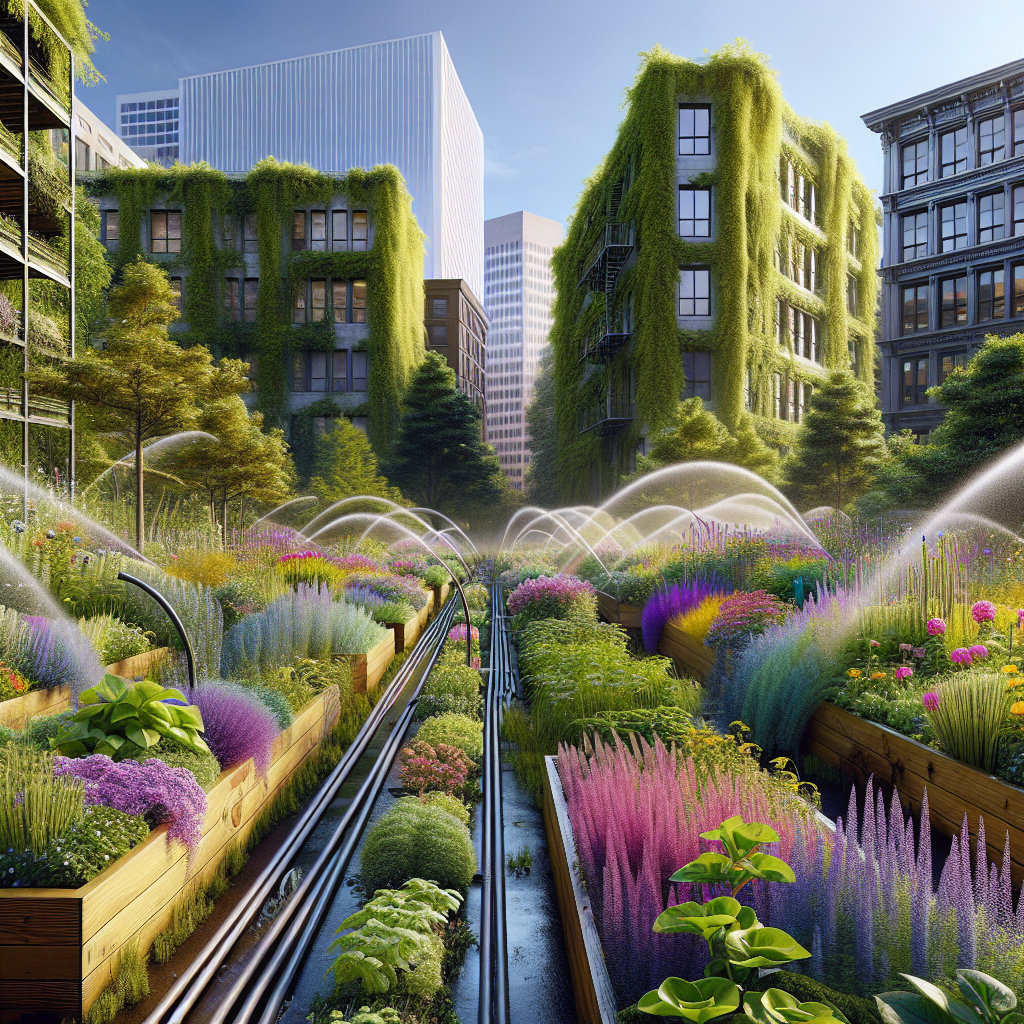
Creating a garden that is both beautiful and environmentally friendly involves incorporating innovative sustainable garden design ideas. In Portland, where sustainability is a key concern for many homeowners, these designs not only enhance the aesthetic appeal of your property but also contribute positively to the local ecology.
One popular design idea is the integration of rain gardens. These gardens are strategically placed to capture and filter rainwater runoff, reducing erosion and preventing pollutants from reaching local waterways. By planting native, water-loving plants, you can create an attractive and functional landscape feature that supports local wildlife.
Vertical gardens are another innovative solution, especially for urban spaces with limited ground area. These gardens utilize vertical spaces on walls or fences to grow a variety of plants, from herbs and vegetables to ornamental flowers. Vertical gardening maximizes space efficiency and can help insulate buildings, reducing energy costs.
Incorporating permaculture principles into your garden design ensures a self-sustaining ecosystem. This involves creating zones that mimic natural ecosystems, using companion planting to enhance growth, and implementing water-saving techniques like rain barrels and drip irrigation. Permaculture gardens are designed to be low-maintenance and highly productive, benefiting both the gardener and the environment.
Using recycled and repurposed materials in your garden design is another sustainable practice. For example, old pallets can be turned into garden beds, and discarded containers can be repurposed as planters. This not only reduces waste but also adds a unique character to your garden.
Finally, consider installing solar-powered garden lighting to reduce energy consumption. Solar lights are eco-friendly and easy to install, providing illumination without the need for extensive wiring or electricity use. They can highlight pathways, accentuate key garden features, and enhance the overall ambiance of your outdoor space.
By implementing these innovative sustainable garden design ideas, you can create a stunning and eco-friendly outdoor area that reflects Portland’s commitment to sustainability. Contact us today to discover how our landscaping services can transform your property!

